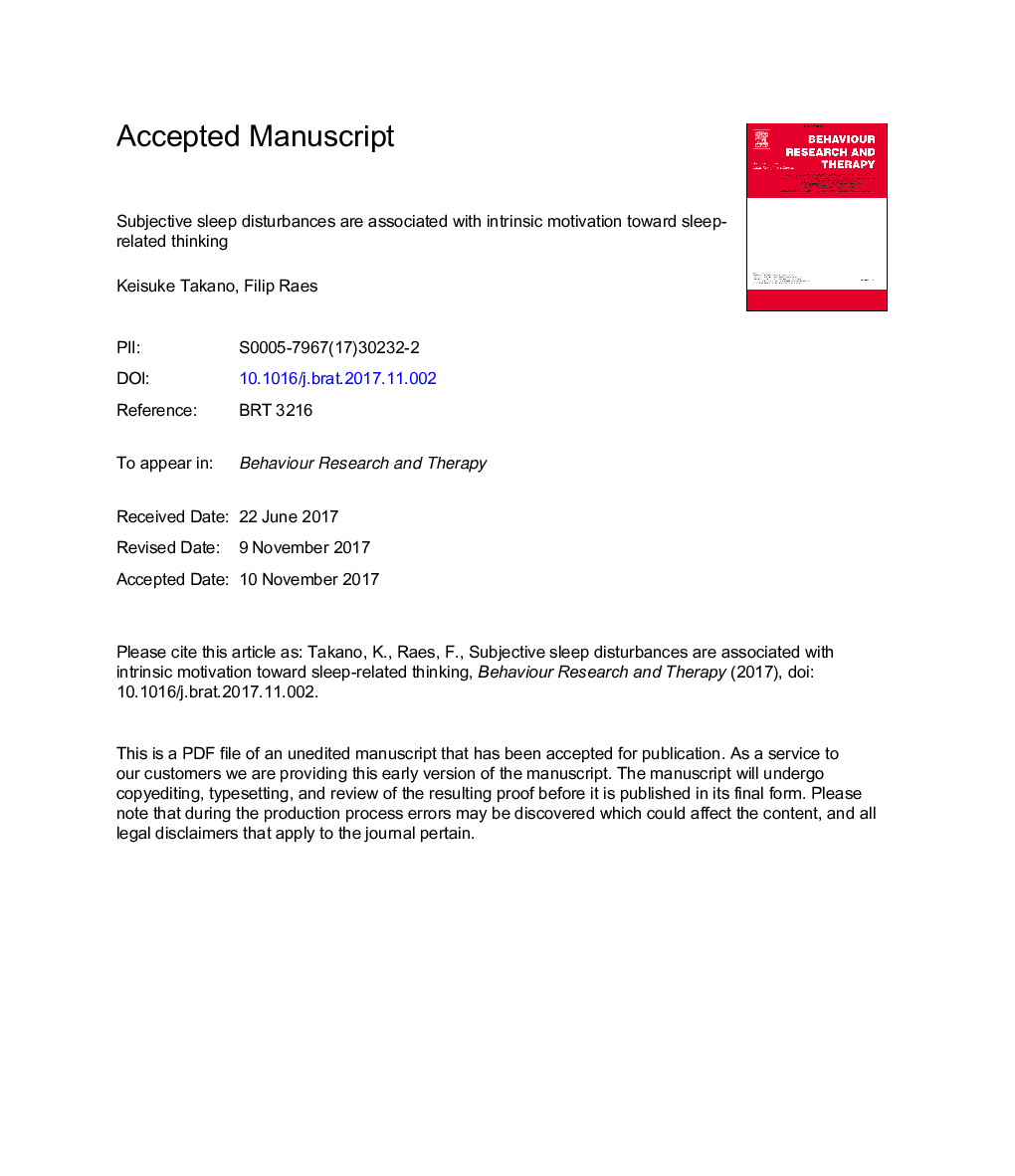| Article ID | Journal | Published Year | Pages | File Type |
|---|---|---|---|---|
| 7261944 | Behaviour Research and Therapy | 2018 | 29 Pages |
Abstract
Biased information processing has been highlighted as a possible vulnerability factor for sleep problems. A theory states that perceived sleeplessness triggers a strong approach motivation (or craving) for sleep, and then activates persistent preoccupation with sleep. However, there is no clear evidence that perceived sleeplessness is associated with such a motivation toward sleep-related information. Thus, we examined the untested idea that people with subjective sleep disturbances would prefer sleep-related topics, using a modified version of the pay-per-view task. In this task, 58 participants were offered two question-type options: the “sleep” option, where participants were asked to answer a question about their sleep, and the “eat” option, where participants needed to answer a question about their eating habits and beliefs. Each option is associated with a variable amount of economic reward and therefore participants sometimes face a conflict between the economic reward and their intrinsic preference for a specific question type. Results showed that people with higher levels of subjective sleep disturbances forgo greater amounts of reward to have an opportunity to answer sleep-related (as opposed to than eating-related) questions. These findings suggest that people who perceive themselves as lacking sleep are highly motivated to engage in sleep-related information processing.
Related Topics
Health Sciences
Medicine and Dentistry
Psychiatry and Mental Health
Authors
Keisuke Takano, Filip Raes,
